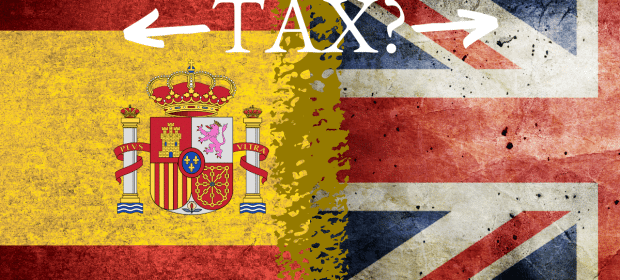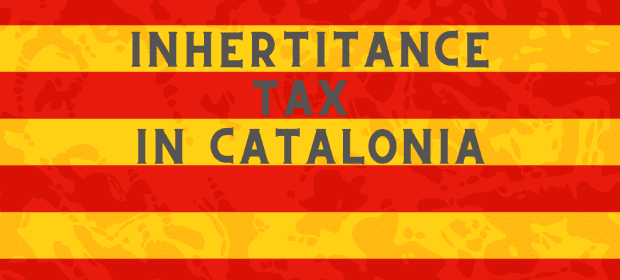Case Study Spanish Tax Resident Couple
Husband 60, wife 60, married, with 2 children who are financially independent and living in the UK
By Barry Davys
This article is published on: 24th January 2023

Husband 60, wife 60, married, with 2 children who are financially independent and living in the UK
👉 Pensions: £930k
👉 Investments £60k
👉 Cash Spain €60k
👉 House €1.25 M
👉 Wills – UK & Spain
👉 Cash UK £184k
Build Understanding of Pension Situation
Better returns on Non Pension monies
Forward Planning including Inheritance tax
✅ Clarity for clients and children on Inheritance Tax
✅ Improved return on bank accounts to 3.5% pa giving an improvement of 4,200 pa
✅ Removed pensions from UK Lifetime Allowance rules
✅ By providing documentary evidence from UK HMRC for Main Residence Nil Rate Band confirmed an inheritance tax saving of up to £140,000
✅ Improved widows pension by £7,000 pa
✅ Kept clients compliant with changing tax rules
✅ Answered the financial question “Am I going to be OK?” with a “Yes”
If you are a resident in Spain, or are planning to become a resident and would like any information on tax, pension transfers, investment planning or general financial planning you can contact me on:
barry.davys@spectrum-ifa.com or direct on 0034 645 257 525
By Barry Davys
This article is published on: 11th July 2022

Inheritance tax in Catalunya is calculated using the same basic principles as the national system in Spain. As in the national system, the taxable entity is the person RECEIVING the bequest, not the person who has passed away.
However, the allowances (deductions) and rates of tax are different in the Automonous Community Catalunya from the national rate. The law that sets these rates and allowances is Catalunya Ley19/2010 which was amended in February 2014.
Who’s this article for?
Overview
Inheritance tax in Catalonia is calculated in a different way than in many other countries and even in other autonomous communities in Spain. The tax to be paid is not necessarily bad. The tax can be less than in the UK for example.
What you get?
This guide gives a reasonable understanding of how Catalan inheritance tax works and the possible amount to pay. You get access to an adviser who specialises in this area and an introduction to an English speaking lawyer who specialises in helping International people living here.
Your Investment
The time taken to read the guide, and perhaps a second read as Catalan IHT tax takes some getting used to. You will also need to book an initial telephone call if you want advice specific to your situation.
If you are resident in Catalunya these are the rules that will apply. Here we have produced a guide to Catalan Inheritance Tax. The most important deductions available are as follows:
Personal Deductions
The starting point in making the calculation is to work out which Group the person receiving the inheritance belongs to as follows:
Group I Children, including adopted children, under the age of 21
Group II Children over 21, spouses, parents and grandchildren
Group III Close relatives such as brothers and sisters, aunts and uncles
Group IV More distant relatives or unrelated
Allowances/deductions available in Catalunya are:
Group I
Deduction of €100,000 plus €12,000 for each year under 21 years of age up to €196,000
Group II
Spouse: €100,000; Child: €100,000; Other Descendants: €50,000; Parents: €30,000
Group III
€8,000
Group IV
No deductions available
Disabled Heir
In addition to any personal deductions applicable a beneficiary who is disabled may add an additional €275,000 deduction if the disability is determined to be greater than 33% or €650,000 where it is greater than 65% disability
Heir over 75 years old
A deduction of €275,000 may be applied where the heir is over 75 years of age who is a beneficiary within Group II though this deduction is applied instead of the other allowances.
Inheritance of the Family Home
Where a property inherited is the main family home then a reduction amounting to 95% of the value of the property up to €500,000 may be made where the beneficiaries are the spouse, child or parent of the deceased as well as collateral relatives, older than 65, that lived with the deceased during the 2 years previous to the decease . The property may not be sold for a period of 5 years if the reduction is claimed.
Allowances available for the Inheritance of the Family Business
A tax deduction of 95% of the value of the interest held by the deceased in the business This applies to all beneficiaries who were related to the deceased to the third level of blood relative and persons in the employ of the business for at least 10 years.
Allowances available for income from Life Insurance Policies
A deduction of 100% is applicable on any income from a life insurance policy held by the deceased up to a maximum of €25,000 where the beneficiary is the spouse, descendant or parent of the deceased.
Inheritance Tax Rates in Catalunya:
Once all deductions have been applied the final amount of tax payable is determined then it is necessary to apply the relevant rate:
| Taxable Sum | Tax Payable on this Sum | Any Reminder up to | Applicable Rate on Remainder % |
| 0 | 0 | 50,000 | 7% |
| 50,000 | 3,500 | 150,000 | 11% |
| 150,000 | 14,500 | 400,000 | 17% |
| 400,000 | 57,000 | 800,000 | 24% |
| 800,000 | 153,000 | Above 800,000 | 32% |
Existing Wealth:
Once the relevant tax has been calculated the result is multiplied by a coefficient determined by the existing wealth of the beneficiary as well as the group to which they belong:
Existing Wealth Multiplier Coefficien
| Existing Wealth in Euros | Group 1 & 2 | Group 3 | Group 4 |
| From 0 a 500.000 | 1,0000 | 1,5882 | 2,0000 |
| From 500.000, 01 to 2.000.000 | 1,1000 | 1,5882 | 2,0000 |
| From 2.000.000, 01 to 4.000.000 | 1,1500 | 1,5882 | 2,0000 |
| More than 4.000.000, 00 | 1,2000 | 1,5882 | 2,0000 |
As a reminder the Groups referred to consist of the following beneficiaries:
Group I Children, including adopted children, under the age of 21
Group II All other descendants, spouses, parents and grandchildren
Group III Close relatives such as brothers and sisters, aunts and uncles
Group IV Distant relatives and unrelated
Special Deductions – Spouse
After applying the tax rates and coefficients above a discount of 99% shall be applied to any tax payable.
Special Deductions – Other Relatives Groups I & II
For Group I & II beneficiaries, apart from the spouse, the following discounts may be applied to the calculated amount of tax due, depending on the amount inherited:
Group 1
| Bottom of Taxable Band Euros |
Total discount to this level % |
Top of Taxable Band Euros |
Discount for this band % |
| 0,00 | 0,00 | 100.000,00 | 99,00 |
| 100,000 | 99,00 | 100.000,00 | 97,00 |
| 200,000 | 98 | 100.000,00 | 95,00 |
| 300,000 | 97 | 200.000,00 | 90,00 |
| 500,000 | 94.20 | 250.000,00 | 80,00 |
| 750,000 | 89.47 | 250.000,00 | 70,00 |
| 1,000,000 | 84.60 | 500.000,00 | 60,00 |
| 1,500,000 | 76.40 | 500.000,00 | 50,00 |
| 2,000,000 | 69.80 | 500.000,00 | 40,00 |
| 2,500,000 | 63.84 | 500.000,00 | 25,00 |
| 3,000,000 | 57.37 | upwards | 20,00 |
Group II:
| Bottom of Taxable Band Euros | Total discount to this level % |
Top of Taxable Band Euros |
Discount for this band % |
| 0,00 | 0,00 | 100.000,00 | 60,00 |
| 100,000 | 60,00 | 100.000,00 | 55,00 |
| 200,000 | 57,50 | 100.000,00 | 50,00 |
| 300,000 | 55,00 | 200.000,00 | 45,00 |
| 500,000 | 51,00 | 250.000,00 | 40,00 |
| 750,000 | 47,33 | 250.000,00 | 35,00 |
| 1,000,000 | 44,25 | 500.000,00 | 30,00 |
| 1,500,000 | 39,50 | 500.000,00 | 25,00 |
| 2,000,000 | 35,88 | 500.000,00 | 20,00 |
| 2,500,000 | 32,70 | 500.000,00 | 10,00 |
| 3,000,000 | 28,92 | upwards | 00,00 |
Special Deductions – Other Relatives Groups I & II
The discount shall be reduced by 50% should the beneficiary apply any of the following deductions:
Many expats pay more tax on their inheritance than they should because they fail to follow some simple rules.
To discuss how to pay only the appropriate amount, please click the button below to get in touch with us.
This information is intended as a guide only. It is based on the current legislation for Inheritance tax in Catalunya as at August 2017. A suitable qualified tax lawyer should always be used to calculate a specific liability. If you require the assistance of a tax lawyer please contact barry.davys@spectrum-ifa.com who will introduce you to an appropriate lawyer. Please also note that this guide does not apply to Gifts (donaciónes) which have their own rules.
By Barry Davys
This article is published on: 23rd May 2022

It is clear from calls and messages to me from people seeking advice there is much confusion regarding taxation when we live in Spain and have income or capital gains in the UK. Sometimes, these calls happen when people have received a letter from the Agencia Tributaria (Hacienda).
My wish is to clarify the situation so that there are no back taxes, fines nor interest to pay in Spain.
This framework will clarify the position and I include specifics regarding pensions. Tax can be, well taxing, so this framework is to help with understanding the overall situation, not to provide specific advice for your situation.
Who’s this for?
This article is for all British people who live in Spain.
Overview
A framework to help explain how do we pay tax on pensions from the UK when living in Spain?
Why to read this article?
This article is written in response to a very sad situation where a pensioner here has been hit by fines, back tax and interest from four years ago because of a mis-understanding on how to organise his tax on his UK pension. It is likely that further fines will follow for other years. The total amount of fines and interest could amount to €21,000
Your commitment
Taking the time to read the article and requesting an initial telephone or Zoom meeting below, if you want help for your specific situation.
Your Tax Framework
Top of the framework is to understand that when we have taxable events in more than one country, the country of our residency is the “controlling tax authority”. They have the final say on what tax must be paid.
If you live in Spain more than 183 days in a calendar year your controlling tax authority is Spain. It does not matter if you also pay tax in the UK.
How this works is as follows:
If you live outside the UK and provide a certificate of tax residency in Spain you can claim dividends, bank interest and even private pensions without paying UK tax (because you will pay tax in Spain).
Pensions, however, are a great source of confusion. The UK retains the right to tax state pensions, military pensions, civil service pensions and a number of others. Previously these did not have to be reported in Spain. They do now!
Tips on pension tax
In my profession as a financial adviser for international people living in Spain I have a clear understanding of tax rules and recommend that you employ a good local tax adviser. This article is not tax advice as it may not reflect your personal circumstances. It is merely a framework to help with your understanding. I hope this article provides more clarity on the issue and helps when you do go to a tax adviser.
By Barry Davys
This article is published on: 18th January 2021


Love it or hate it seems to be the approach to Bitcoin. It will be the best investment ever or it is just a bubble controlled by the few people who can pull the strings, rumoured to be the Chinese.
Let’s start with “What is Bitcoin?”. Bitcoin is a piece of computer software with the ability to share pieces of the software with other people. Of course, the other people have to pay for their share of the software and the price varies according to supply and demand. In principle, there is nothing wrong with this. It worked for Bill Gates.
To get a better of understanding of Bitcoin it is worthwhile making that comparison with Microsoft. With Microsoft we know who owns the product, the products have set prices and perform a function that makes something happen, e.g. run our computer, allow us to write letters, make presentations and do our numbers on spreadsheets. Bitcoin has none of these attributes.
The way Bitcoin pricing works is much more like a commodity. If you go to Starbucks today and buy a coffee, let’s say you pay 4€. Next week you want a coffee. The same coffee now costs 5€. The coffee has not changed, only the price. The difference may be due to shortages, logistical difficulties during a pandemic, many more people wanting a Starbucks coffee, exchange rate movements etc. Bitcoin works in the same way. The price of Bitcoin is primarily set by demand as the supply is fixed. There are only so many Bitcoins in the World. At least you can do something nice with a coffee bean. Bitcoin’s primary purpose is just as something you can sell to someone else. It has no other purpose at the moment.
You would now have a valid point if you were to pull me up on this analysis. “You can use it to buy goods and services” is a fair comment to make, however, there is a ‘but’ that should follow that statement. Whilst the number of places you can use Bitcoin to make a purchase is increasing it is not widespread.
Bitcoin is super volatile, which is great on the way up and terrible when it falls after you have just bought it. Here are some important figures which tell you about Bitcoin’s volatility.
2009 – 2017 little price movement
Autumn 2017 the price rises
October 2017 $5,000
November 2017 $10,000
17th December 2017 $19,783
April 2018 $7,000
November 2018 $3,500
14th March 2020 $5,165
It has bounced again in recent weeks and is now at $40,714 as I write this article (9th Jan 2021). Institutional investors (fund managers, hedge funds etc) are now buying Bitcoin. Increased demand of a fixed supply commodity pushes up the price. Will this last? I do not know. Is it a bubble? Again, I do not know. However, what I do know is that institutional investors invest to a plan. They systematically take profits i.e. sell some of their holdings. They are disciplined. They manage risk by keeping a balance of different investments. Should these institutional investors take profits, other fund managers will follow and sell so as not to get caught out by a large price fall. Their careers depend on getting it right. The ability to feed their family depends on it. They analyse, have large teams doing research, watch and wait before buying and sound out other professional colleagues to ensure they sell in a timely manner. The field of behavioural finance has shown that as individual investors we use the part of our brain driven by emotion when making investment decisions, especially when there is a big price movement in an asset. This emotion based decision making often leads to poor decision making.
There is a body of opinion from Bitcoin exchanges and advocates that is putting forward the theory that Bitcoin is going to become a national currency in some countries and therefore the price is going to go ballistic (their phrase). It is unlikely that a non regulated, very volatile commodity will be used as a national currency.
Here is an example from me of the practical problems. A solicitor practice in Barcelona started to accept Bitcoin for settlement of their fees. It looked like a superb idea to show they were a forward-looking firm.
The problem comes with the volatility. Between issuing the invoice and payment by the client there is a delay. Having charged 1.03874 Bitcoins, for example, they had no idea how much they would get in the currency that would pay all the bills of the firm, such as their staff (Can we pay you in Bitcoins Mrs staff member? Ah, no!), electricity company etc. So having chosen 1.03874 Bitcoins as the fee because that would generate 4,000 in Euros, at the date of payment it could have been just €2,000 value. For this reason it is very unlikely that Bitcoin will become a national currency!
If you wish to invest in Bitcoins, it is worthwhile separating them from your primary investments. Bitcoins will then not influence your investment decisions on your main portfolio in the way that they might be if they are on the same investment platform. How much should you invest in Bitcoin? Set aside a percentage of your savings and only invest that much. Whether it is 1% or 10% will depend on your overall circumstances. However, with Bitcoin it is very worthwhile applying the rule that only invest what you can afford to lose. That way, if you lose it all it has not damaged your financial wellbeing. If it goes up 400% next week, you will be able to take some profit and perhaps spend your winnings on something frivolous.
Bitcoin profits will be taxed. Remember to put money aside from your winnings to pay tax. The amount of tax will depend on your country of residence. The annual declaration can be very difficult so keep track of all your transactions. A figure of 23% of the profit is a good guideline as the amount to put aside if you live in Spain.
Practical Tip. A more mainstream alternative to investing in Bitcoin is the technology that Bitcoin is based on called blockchain. Blockchain has lots of uses and is good news. Uses include electronic voting in national elections, supply change management, payment systems, and anti-counterfeiting software. It can also allow companies to work together and share only what they need to for a specific project.
As an example of what is possible, there are also many Blockchain propositions for supply chain management for Covid 19 vaccines and contact tracing. For more information on blockchain, you could read “Blockchain Revolution” by Don and Alex Tapscott. You can already find many investments to include in your main portfolio such as ETFs and funds. For more information on these funds email barry.davys@spectrum-ifa.com
A final point on Bitcoin. When someone sells a Bitcoin what does the buyer pay with? It is one of the major currencies. Sellers still want good old fashioned US dollars, Euros or Sterling when they part with their coin. That tells us something!
By Barry Davys
This article is published on: 7th January 2021

ESG investing is now a mainstream type of investing and a useful part of a portfolio. But what is it and why is it good for me?
A year ago, someone came to ask for advice on moving investments from UK investments to Spain investment. We discussed their position, their requirements, their reasoning behind moving the money to Spain. All the reasoning behind the thought process was very sound. However, there were some practical aspects that I highlighted that needed addressing before making the move. The issues were taxation in Spain and their requirement for sustainable and/or responsible investments.
These people were really pleased with their investments with returns over 120% in 8 years. The increase in value in these funds had been so spectacular that there was a large capital gains tax liability in Spain if they were to sell. Also, the funds also still meet their belief in ESG values.My advice was for them to keep their investments.
So what is ESG investing and why have the returns been so good? Why is it a good type of investing for the coming years? ESG is short for Environmental, Social and Governance. ESG investing is investing in the shares of companies that have good practices in these three areas.
An example of a company that would tick all three elements is a company that sells solar panels and a maintenance contract for them but does not charge for the electricity that the panels produce. Many of the established players in the market sell panels and then charge for the electricity in the same way as a normal electricity company.
This is my view, but charging for the electricity produced is wrong. The source of the power, sunlight, is free. Sunlight costs the seller of the solar panels nothing and should not therefore be charged to the panel buyer. Companies that sell solar panels without charging for the electricity meet the governance criteria. They also meet the environmental aspect because it is a renewable energy. These companies are now providing social benefit because they are setting up systems for communities, e.g. apartment blocks. They are a good example of a company that meets the ESG requirements.
Why is this good for your portfolio? When the “good” companies highlight that energy is free once you have bought their panels, sales will increase. We would all like free energy having bought the panels. Other recent ESG examples include Zoom and other companies that allow us to work from home (+400% share price increase in 12 months), Geely who owns Volvo, Lotus and other brands all converting to electric cars (+70.66%) and BlackRock Inc, the world’s largest asset manager who has just declared it is moving to ESG screening for every investment it makes (+41%).
BlackRock assets are $7.81 trillion as at 31st December 2020. They are joined, in varying degrees, by the following fund managers in ESG vetting of and investing in companies with ESG credentials.
This is a small number of the fund managers that have declared their intentions to invest in ESG assets. Are they doing this because of a collective social consciousness? They may tell us that, but the reality is the companies that can be classed as ESG are often the companies of the future. This is where the growth is and with this much collective demand from the above managers and more the sector will be well supported.
At Spectrum we believe in the benefits of ESG investing; it goes alongside our support of a number of charities. However, we also believe in it as a method of adding future value to our clients’ investments.
If you have a question about ESG investing and would like to discover more, please feel welcome to get in touch. We are also happy to review your investments to see how you can incorporate ESG investing into your savings.
You can be an ESG investor today!
As individuals, you can join the ESG movement.
By Barry Davys
This article is published on: 14th June 2020

The point of having money is personal to you. Looking after your money should always start with your requirements. Your life has its own twists and turns. Your hopes and dreams are just that; YOUR hopes and dreams. How you feel about money is personal to you.
In this article I give you a framework for why you may want money. Once you have the framework, you can colour in the detail in a way that suits your requirements.
Knowing your answer to the question, ‘What’s the point of having money?’ is the starting point. Money, savings, investments, whichever you wish to call it, provides you with choice. The reason for having money is that it gives you one of three things; security, freedom or opportunity. Which choice you choose is up to you. The answer may be correct for you but different for your neighbour, even if you live next door in the same size house.
Security
Security means that you have enough money to be able to settle your debts, pay nursing fees if required, pay for medical treatment and perhaps be able to help the children to buy a house. People who want security often have a home free of mortgage; their little piece of heaven that they own.
To settle on having security means you need capital. Often people choose not to take risk with their money because they want to be certain it is there if they need it. A fall in the stockmarket will not damage the security blanket of money in the bank. Your savings are just one big emergency fund. In these times of extremely low interest rates there are only a few places to get a little investment return for this option.
More and more, I see that this form of planning is undermined by long life expectancy and inflation. Hoarding the capital without making it work can lead to the erosion of the buying power of these savings. Sadly, insecurity comes after years in retirement when people realise that what they thought was enough money, is not.

Freedom
Freedom is gained when your savings are invested to provide you with sufficient income to live on, whether or not you continue to work.
To achieve this position depends on what lifestyle you have. The more flamboyant the lifestyle, the harder your money will need to work.
To achieve a feeling of freedom, money is required, and it needs to work hard. You yourself should feel in a “life is good” state of mind. Your money must be making money and it must later be able to provide you with income if you want or need it. Making money means that you need to invest in shares, bonds and perhaps some property (in addition to the home where you live). If you do not have the inclination or skill to do this yourself, you should work with a professional adviser or use funds. Some investments can provide you income now and others with capital growth. The growth parts will protect against inflation and can mean you can increase your income later.
Opportunity
Do you want your life to be full of opportunities? To be a space tourist? To ride a Harley Davidson to Lapland from Denmark like Steve Forbes (Forbes magazine) did, just to see the Northern Lights? Or both? What an opportunity that would be seeing the Northern Lights from earth AND then see them from space. Or to be one of the first investors in the company that makes the software for all the driverless cars in the world? As your world is a world of opportunity there are many, many more things that you can do with your life; most people will never ever get the opportunities you do.
To build this life takes more money. You may have sold a business, for example. Or received an inheritance. And this money will have to work hard for you. You may have some core holdings to give you a diversified portfolio, but you will also have to take some risks to make your money work hard enough to provide you with a life full of opportunities. Take more risk with your investments, but be able to withstand an investment that doesn’t perform well. In addition to the investments used by someone looking for freedom, you may also invest in a new business, for example. This takes skill to analyse the potential of investments and you will benefit by taking advice from qualified and experienced people.
Whether you need help with deciding on your choice or you wish to discuss how to execute your plan, please contact me for assistance. An understanding of your concerns when discussing your aims and choices together with the expertise to execute the plan for your benefit can make for a strong and trusting professional relationship.